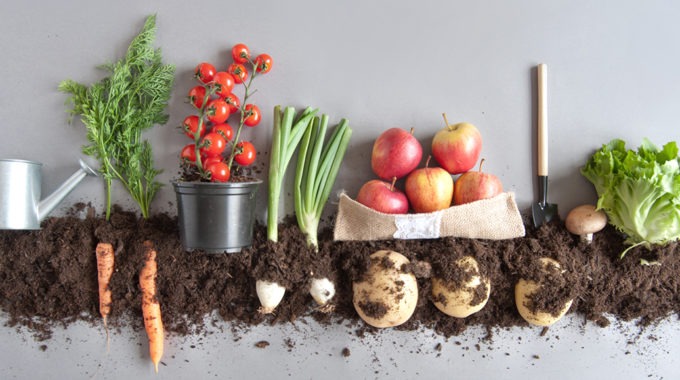Australian Organic Awareness Month 2022
The impressive work of our certified organic food producers is being highlighted this September for Australian Organic Awareness Month. This annual event aims to educate consumers about what to look for when buying organic produce. Here’s how to tell if a product is the real McCoy… or just using the word “organic” as a marketing ploy.
The Australian organic industry is currently worth around $2.6 billion. Australian demand for certified organic products continues to grow at a rapid rate. This has been driven by a burgeoning consumer appetite for natural, pesticide-free and synthetic chemical-free food, as well as increasing awareness of the importance of environmentally sustainable food production. But this demand has also led to an uptick in sneaky manufacturers labelling their products as organic, even when they’re not.
“At the moment, being certified organic within Australia is a voluntary process,” says Australian Organic CEO Niki Ford. “Any producer or manufacturer can claim a product is organic on its packaging with as little as one ingredient being from organic origins.”
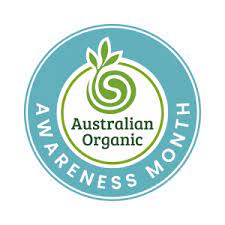
Look for a logo
While there are many foods that claim to be organic, only officially certified organic products will feature an official certification logo. The best-known is the “BUD” logo.
“If people are considering buying a product that says it’s organic but there’s no proof of any certification, it could be anything,” says Paul da Silva, Marketing and Innovation Director at Arcadian Organic & Natural Meat Company, which produces Cleaver’s Organic meats.
“It could have been raised by someone who says, ‘You know what? I think glyphosate [a common herbicide found in many weed killers, such as RoundUp] isn’t that bad. And because my animals wander around and I don’t put them in a feedlot for more than 20 percent of their lives, I reckon I’m going to call my meat organic’.
“They can do that. And the consumer is none the wiser. And nobody’s checking. That’s why a big part of Organic Awareness Month is to get people to understand that if you don’t want to be misled, you need to buy a certified organic product.”
If a product is certified organic, it means it’s been audited to comply with the federal government’s standard for organic and biodynamic produce. So if you want to ensure that what you’re buying is genuinely organic, you need to look for an organic certification mark.
“It will say ‘certified organic’, and it will have a certification number,” da Silva explains. “That means somebody independent has checked this product out against the standard.”
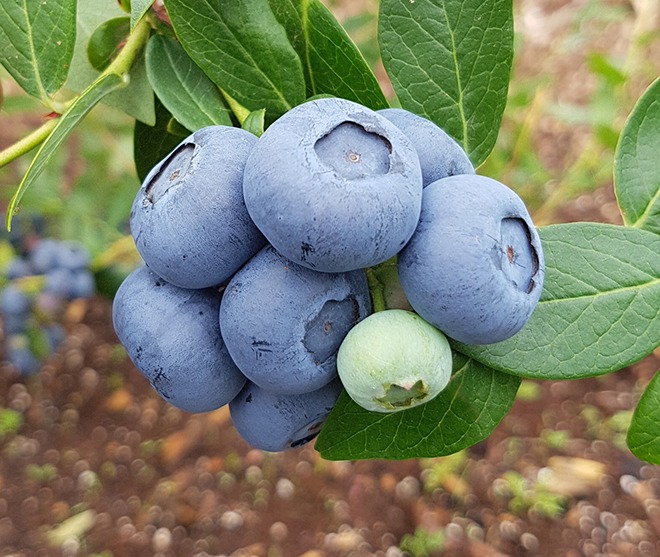
What does it mean to be certified organic?
A farmer can’t just become certified organic overnight. It’s a lengthy process that’s done over a period of years. And once you’re certified, you’ll continue to be audited every year. Everything from soil analysis to product testing is undertaken, and all the boxes have to be ticked in order to maintain your certification.
Moondarra Blueberries has been growing and selling certified organic blueberries in Victoria since the 1980s. Many years before “organic” was a trendy marketing buzzword. The family-owned business was established by Mal Deveson, who’s now handed over the reins to his son Joel, and daughter Kate Prezioso.
“When I was just a kid, there was this chemical seller who used to travel around to farms as the local agent for whatever company he worked for,” Prezioso says. “Dad says he remembers that the guy would come and shake his hand, and when Dad would smell his hand later on it would smell like chemicals.
“He said it was like a wake-up call – he thought, ‘why would I want to put those chemicals onto fruit that we’re going to eat?’”
But being truly organic means so much more than simply not spraying chemicals on your crops or grass. It’s an entire farming and life philosophy.
“Organics is a bigger picture than just that immediate product,” Prezioso explains. “It’s about improving the health of the soil and the micro flora and fauna that live in it; it’s about how you treat your workers; it’s about limiting energy usage overall.”
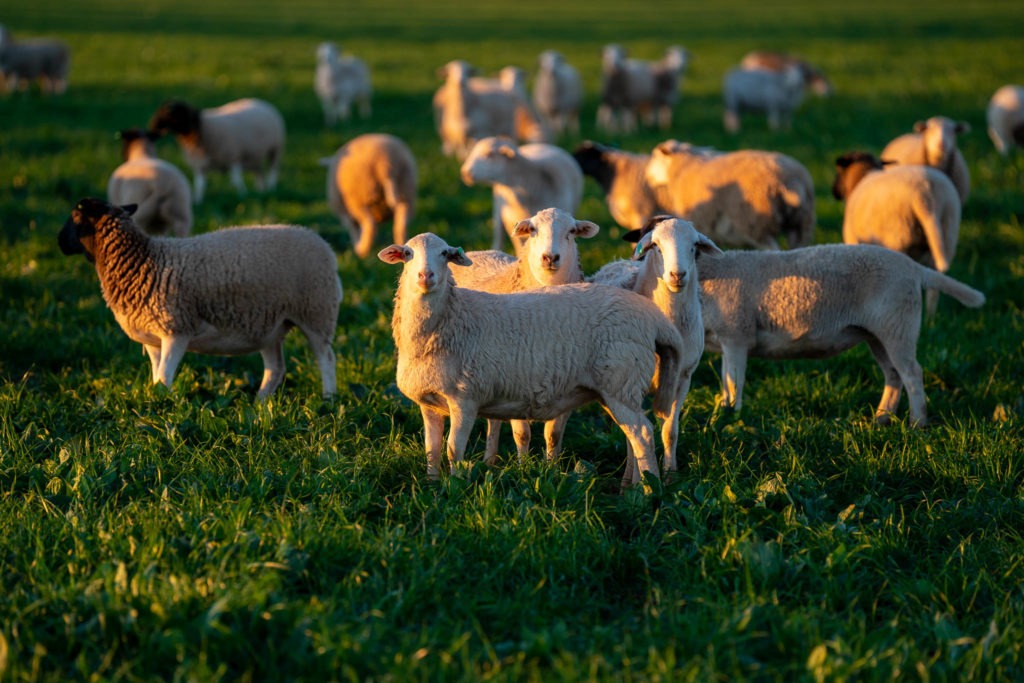
Free range is a given
When it comes to livestock, da Silva explains that “certified organic” meat means the animals are raised entirely free range for their whole lives.
“A lot of people don’t understand that,” he says. “If it’s certified organic meat, then those animals are automatically free range. You don’t need to go looking for separate free-range proof. Raising sheep and cattle under an organic certified system basically means you let ‘em roam and leave ‘em alone.
“They’re also entirely grass-fed and finished. This means that they’re never in a feedlot, and they’re never grain-fed. They live the way people imagine sheep and cattle would live, wandering around in open paddocks, eating grass.”
Certified organic livestock are also never given any hormone growth promotants, genetically modified organisms or antibiotics.
“Every step of the chain has to be certified organic,” da Silva says. “And this means that consumers can be 100 percent confident that what they’re getting really is organic.”
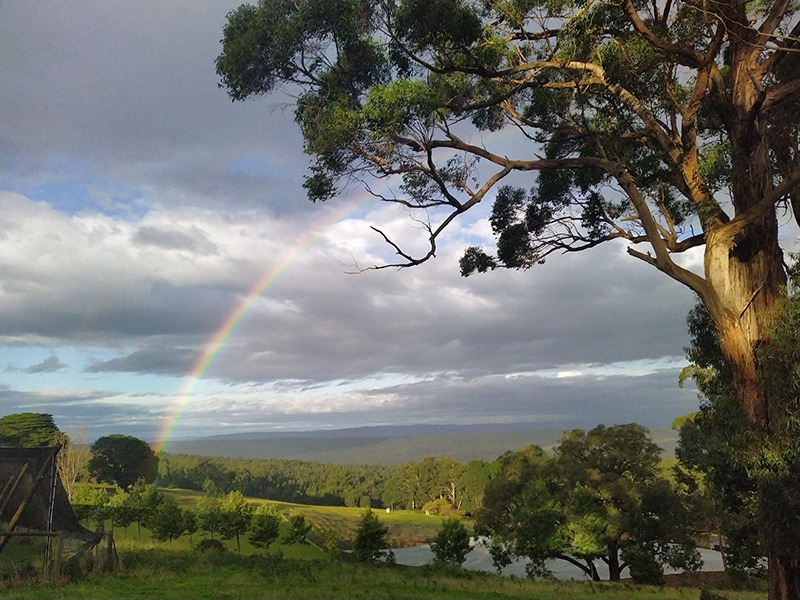
Embracing innovation
Certified organic farming may have its roots in the old ways of growing food – letting Mother Nature do her thing – but organic farmers are also often quick to embrace alternative methods that allow them to control pests, weeds and other problems in ways that are less labour-intensive but don’t disturb the ecosystem.
Moondarra uses a thermal weeder, which employs nothing but steam to destroy weeds right down to their roots: “Basically, it’s a steam wand on the back of a tractor that you run over the top of the weeds,” Prezioso says. “Through the heat, it destroys the weed roots without destroying the roots of the blueberry plants, because blueberry roots are deeper.
“It’s not just pulling out a weed – it actually kills it without using any chemicals. We also leave the dead weeds there, which means they break down into the soil and help with the organic matter content and the biodiversity of the soil.”

Meet the quack pack
Angove Family Winemakers vineyard in McLaren Vale, South Australia, has found a rather novel way of dealing with one particular slimy pest.
“Snails can be a big problem for the wine industry,” says winemaker Sophie Angove. “They feed on the young shoots that burst after rain, which reduces the yield potential for vines. They can also damage the grape harvest through contamination.”
Winemakers generally use a range of different tactics to control snails. It’s common for them to use bait balls or synthetic chemical interventions, including chemical pesticides. But Angove has found another method that’s far less harmful… and a lot cuter.
“We employ a team of Indian runner ducks to control the snail population,” Angove says.
Throughout the vineyard, areas are fenced off for targeted “snailing”. If left to roam at random, the ducks will only eat snails that are easy to find. But by fencing off areas, the ducks burrow deep to pick out the hidden snails that would otherwise come out when it rains and feed on grapevine buds and young leaves.
“By letting the ducks roam on the vineyard and eat the snails, we’re enabling a sustainable ecosystem which relies on the balance of nature,” Angove says. “The ducks remove the snails. That helps the vines to grow without the need for chemical controls.”
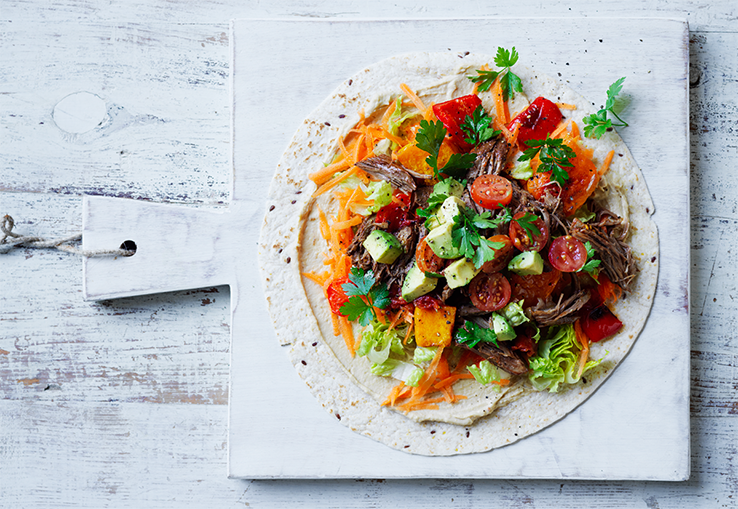
The proof is in the eating
Certified organic produce isn’t just kinder on the landscape and on livestock. It also tastes better. Moondarra has been selling blueberries at local farmers’ markets for 15 years. Prezioso says the response from customers never ceases to delight.
“It still amazes us how many people say, ‘I’ve tried your blueberries. They’re so much better than anything else I’ve tasted before’,” she says. “They tell us that the blueberries they normally buy from the supermarket are always sour and under-ripe; that they never thought much of blueberries before. But then they try ours, and they’re converted!”
When it comes to meat, organic livestock farming practices mean less stress on the animals, and less stress means better tasting meat. “Anything that causes stress to livestock has an effect on the eating quality of the meat,” da Silva says.
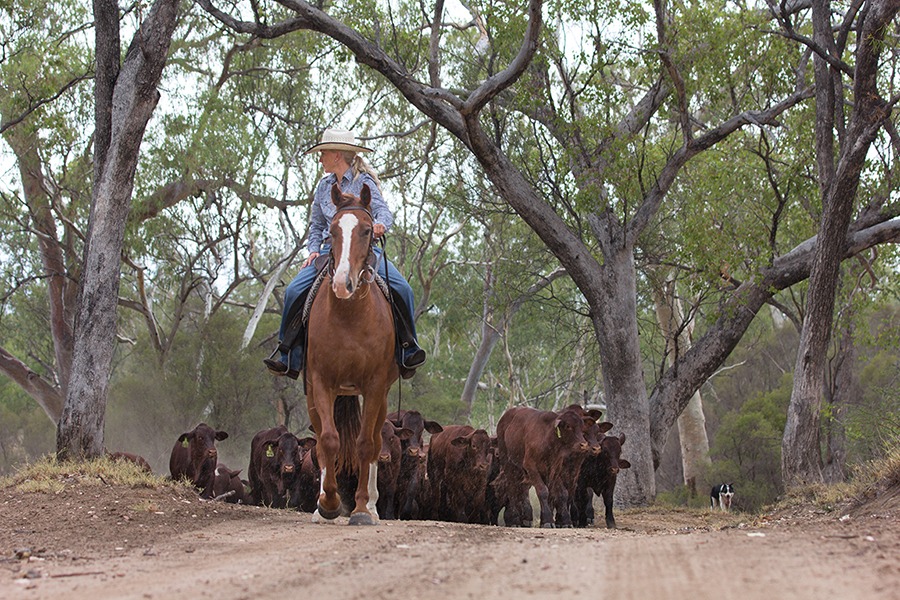
Meating demand
Because of the growing demand for quality organic meat, Cleaver’s has expanded from selling only fresh cuts onto more “value-added” products, including certified organic beef hot dogs, chicken nuggets and lasagne. All three won the Australian Organic annual awards’ Organic Food Product of the Year when they were launched.
“So many people are now looking for more organic food options,” da Silva says. “There are lots of categories where there was nothing available. Like a lot of the convenience foods that people love the ease and the taste of, but they really didn’t want to know what was in it. Or maybe didn’t want to be feeding it to their kids.
“So that’s why we thought, what if we can bring genuine trust to those categories?”
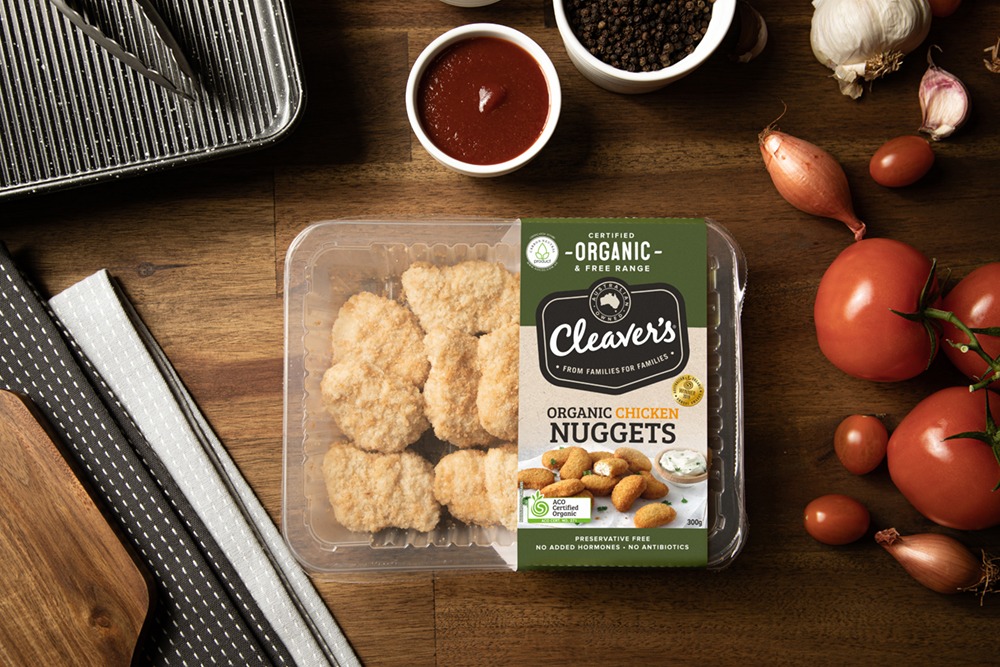
Going the extra mile
Cleaver’s has also taken the extra step of becoming 100 percent carbon neutral. It’s a massive undertaking for a meat production business. Because it’s impossible for such a business to be zero-emission, Cleaver’s has achieved this by offsets.
“We have the big picture view of ‘treat people well, treat animals well and treat the land well’,” da Silva says. “We think we should be trying to get our producers to leave the land in better shape than they got it. It’s all about stewardship
“To come good on that world view, being carbon neutral was something we felt we had to do. Every animal, every product, every process in our business is now carbon neutral.”
Moondarra has introduced new sustainable, zero-plastic blueberry packaging. It sells 125g punnets in a container made from sugar cane and a film made out of eucalyptus.
“It’s fully home-compostable,” Prezioso says. “You can become certified organic by having plastic packaging, which is fine. But we felt it would be much more ‘big picture’ if right through to the end, we had a product that would break down in your garden.”
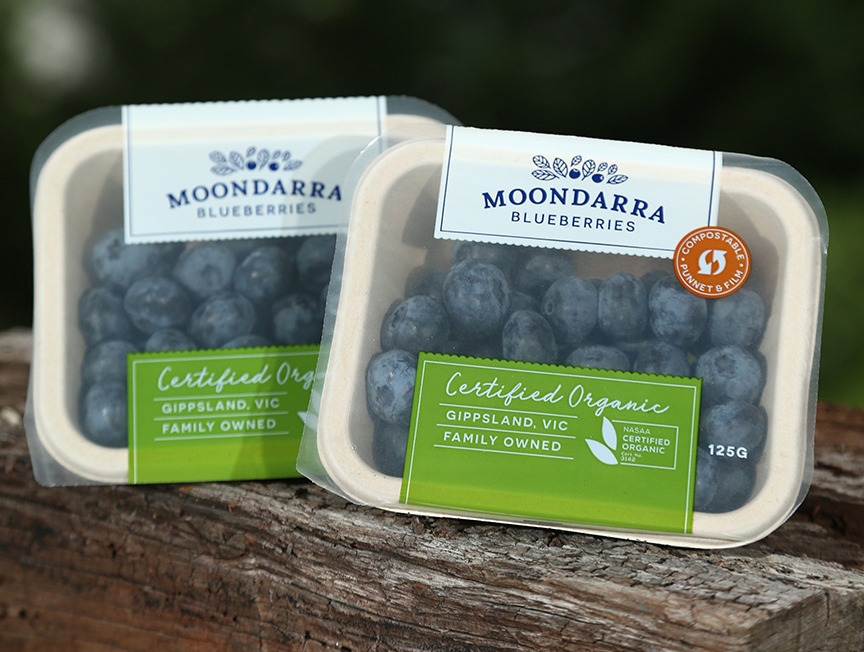
Security for the future
As demand grows and farmers innovate, more food producers are now considering making the commitment to become certified organic.
“You have to be prepared to make a three-year commitment to be certified,” da Silva says. “But the advantage is that when you’ve done that, there’s a premium for your product. And you know you’re on to a system that’s sustainable. Both from a business point of view and from an environmental point of view.
“Many family-owned farms have disappeared over the last 40 to 50 years. But for the people who do have a family farm? They want to keep it viable and want to hand it over to their kids. Becoming organic is a way to do that.”
To learn more about how you can get involved, visit the Australian Organic Awareness Month website at budorganic.com.au


